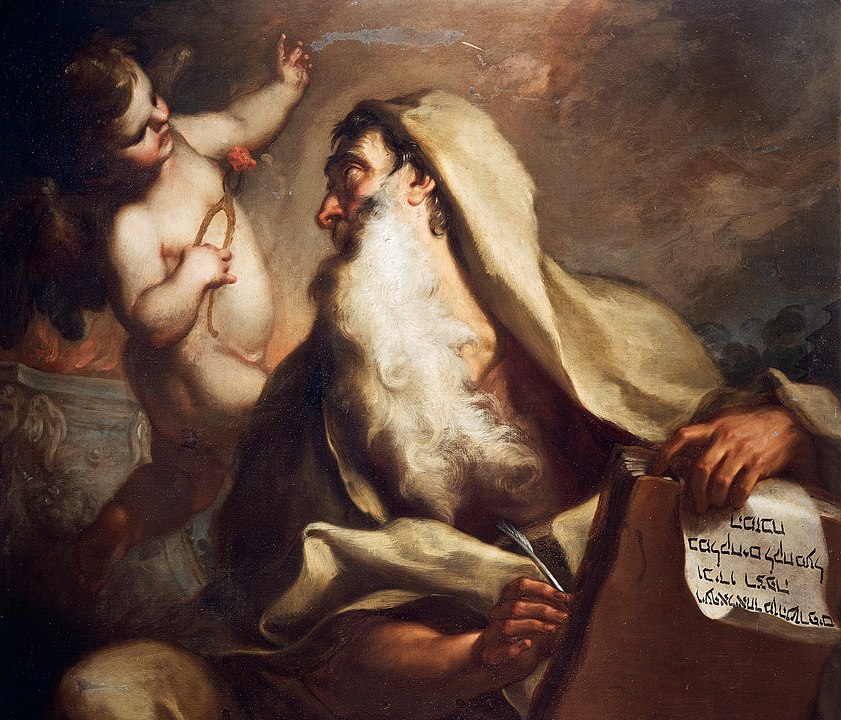The English name of the Book of Devarim, Deuteronomy, is derived from the Greek translation of the rabbinic name for the book – משנה תורה – the repetition, or recap, of the Torah. It seems appropriate to have this recap as the month of Elul is approaching, followed by Rosh HaShana and Yom Kippur, as it is a period of reflection and contemplation in which we review and relive the year that was, hoping to correct past mistakes and to avoid future ones. One of the tools which is supposed to help us with this process is the Viduy, confession. Soon, Sephardic communities will start reciting daily Selihot, and the Ashkenazim will join them in a couple of weeks. By the time we conclude the High Holidays prayers with Neila at the end of Kippur, we have rattled off hundreds of confessions and supplications, admitting atrocities such as murder, adultery, and armed robbery. To say that our Viduy is an overkill would be an understatement
Viduy should be a personal thing, not a check list you read while banging your chest as a sign of remorse. It should not be recited daily, and definitely not three times a day, or dozens of times as is the case with Kippur. Several years ago, I wrote about Viduy and offered and alternative, which you can read here. But even that was only a suggestion for reflection and probably should be updated.
But let us go back to our Viduy, the one printed in our prayer books. What would the Viduy look like had it focused on this statement (Deut. 10:17-18):
כִּ֚י יְיָ אֱלֹֽהֵיכֶ֔ם ה֚וּא אֱלֹהֵ֣י הָֽאֱלֹהִ֔ים וַאֲדֹנֵ֖י הָאֲדֹנִ֑ים, הָאֵ֨ל הַגָּדֹ֤ל הַגִּבֹּר֙ וְהַנּוֹרָ֔א אֲשֶׁר֙ לֹא־יִשָּׂ֣א פָנִ֔ים וְלֹ֥א יִקַּ֖ח שֹֽׁחַד. עֹשֶׂ֛ה מִשְׁפַּ֥ט יָת֖וֹם וְאַלְמָנָ֑ה וְאֹהֵ֣ב גֵּ֔ר לָ֥תֶת ל֖וֹ לֶ֥חֶם וְשִׂמְלָֽה
For God… is great, mighty, and revered. He will not give preferential treatment and will not accept bribe. He upholds justice for orphans and widows and loves the sojourner, giving him food and clothes.
God’s might is in His ability to hear the plight of the weaker layers of society, those who are usually pushed aside or stepped on by the system. The warning of Deuteronomy, and the call to follow God’s pathways in caring for orphans and widows, was unfortunately ignored already in biblical times, as the prophet Isaiah demands and laments (1:17 and 23):
לִמְד֥וּ הֵיטֵ֛ב דִּרְשׁ֥וּ מִשְׁפָּ֖ט אַשְּׁר֣וּ חָמ֑וֹץ, שִׁפְט֣וּ יָת֔וֹם רִ֖יבוּ אַלְמָנָֽה… שָׂרַ֣יִךְ… יָתוֹם֙ לֹ֣א יִשְׁפֹּ֔טוּ וְרִ֥יב אַלְמָנָ֖ה לֹֽא־יָב֥וֹא אֲלֵיהֶֽם
Learn well, seek justice, rectify corruption, provide justice for the orphan, and defend the widow… your leaders… do not provide justice to the orphan and the plight of the widow does not reach them…
What would the Viduy look like if it were authored by Isaiah? Probably this:
בפיו ובשפתיו כבדוני ולבו ריחק ממני, ותהי יראתם אותי מצות אנשים מלומדה
They pay tribute with their mouth and lips, but their heart is far removed from Me, and their reverence of Me is a force of habit (29:13).
Besides idolatry, which does not seem to be a major concern nowadays, Isaiah speaks of hypocrisy, business ethics, lack of leadership, accepting bribe or benefits, disregard for the weaker layers of society, lacking respect for Shabbat, and pursuit of wealth instead of knowledge (See Isaiah 1:13-24; 2:7-8; 3:14; 5:8; 56:1-2; and chapter 58).
Not everything Isaiah says applies to us, but his list is much more realistic and relatable than the Viduy in our prayer books, even though Isaiah predates the Siddur by a thousand years. Maybe what we should have in the Siddur instead of the text of the Viduy is some lines of guidance such as:
At this point in Tefila you should take several minutes to sit in silence and contemplate your day, week, or year. Focus on one item of each of the following categories: my relationship with God, with other people, and with myself. Think what is missing and how you can make it better. It does not have to be a huge change. The most important thing is to acknowledge the problem and start working towards a solution, even if we take baby steps at the beginning.
While that might have been the ideal solution, many people feel more comfortable reading a written text, or using it to guide the process, so I would like to ask the readers to write and tell me (you could always say that these are problems you recognize in other people):
What are the things you would have included in a modern version of the Viduy?








Ohr HaChaim Yomi – Emor